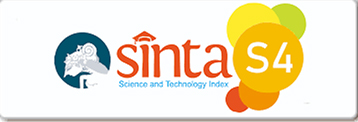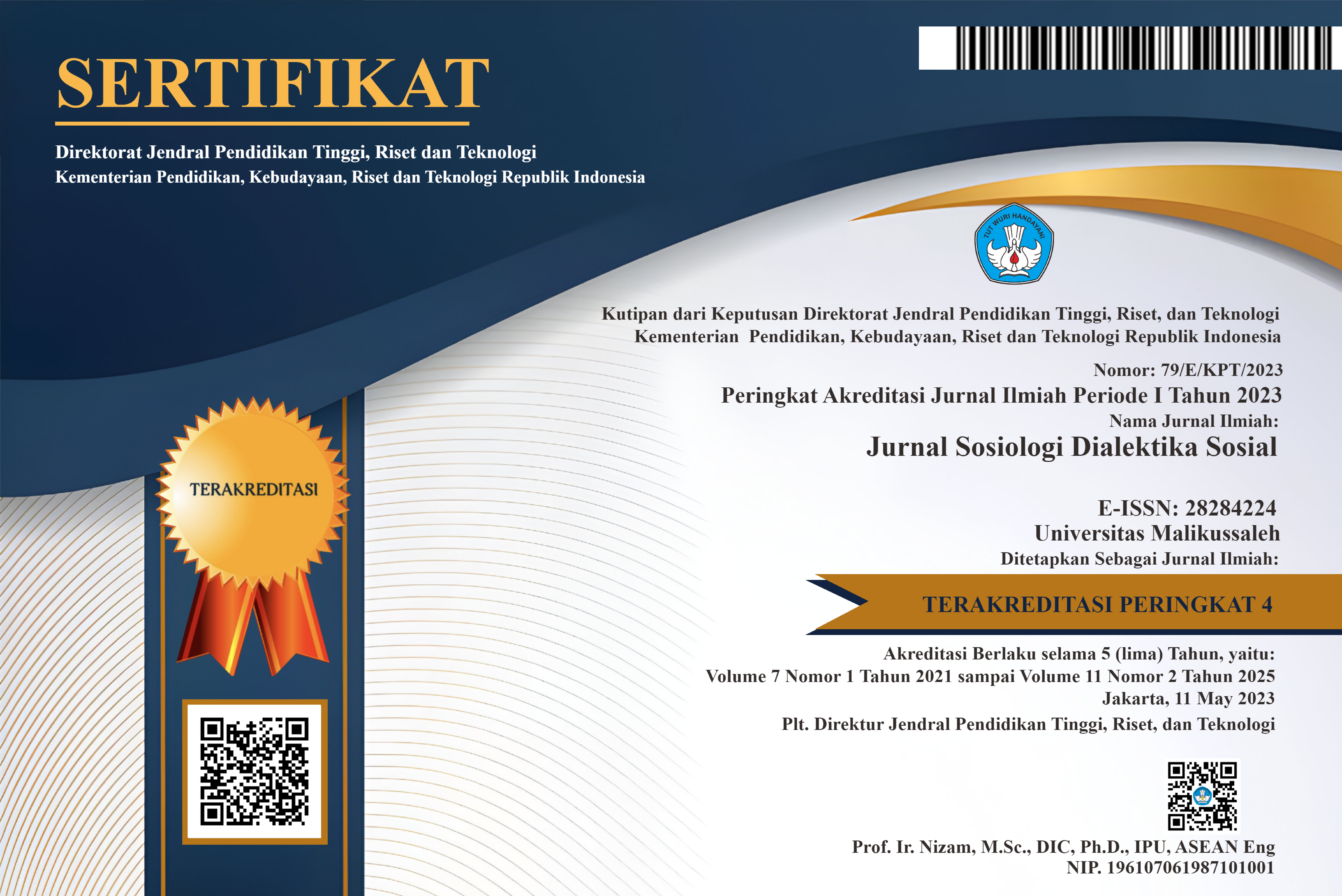THE INFLUENCE OF ARTIFICIAL INTELLIGENCE IN THE MEDIA INDUSTRY IN INDONESIA
Abstract
The influence and use of Artificial Intelligence (AI) in the mass media industry in Indonesia has begun to be applied. Both online media and television. In fact, mass media in Indonesia also produce content in the form of audio, video, text and presenters using AI. The use of this technology does make it easier for media workers. However, it has various shortcomings and problems that arise as a logical consequence of the presence of AI technology. This research was conducted using a qualitative approach with a descriptive analysis style. The results show that AI technology has shortcomings in terms of accuracy, verification, and validation of data collected from the digital universe. On the other hand, it has no legal justification in Indonesia. For this reason, special regulations for the use of AI in the Indonesian mass media are needed. Thus, the public as the main recipient of information is not harmed and maintains the image of the media industry as the most trusted institution in the country.
Keywords
Full Text:
PDFReferences
Anyoha, R. (2017). The history of artificial intelligence. Science in the News, 28.
Ayunda, M., & Rosalina, L. (2023). Kelayakan Sediaan Sampo Daun Jarak Pagar (Jatropha Curcas L.) untuk Perawatan Rambut. Jurnal Pendidikan Tambusai, 7(2), 15927–15937.
Bungin, B. (2005). Quantitative Research Methodology in Communication, Economics, and Public Policy and Other Social Sciences (First (ed.)). Prenada Media.
Damayanti, S. (2023). Metode Penciptaan Desain Kerajinan Menggunakan Adobe Illustrator. Fashion and Fashion Education Journal, 12(1), 54–61.
Eriana, E. S., & Zein, A. (2023). Artificial Intelligence (AI).
Fadli, A. (2018). Etika dan tanggung jawab jurnalis (studi pemberitaan hoax melalui media online di kota Makassar). Jurnal Jurnalisa, 4(2).
Ghazmi, S. F. (2021). The Urgency of Regulating Artificial Intelligence in Online Business Sector in INdonesia. Jurnal Hukum Lex Generalis, 2(8), 782–803.
Hazim, Y. F. (2022). Perlindungan Hukum Terhadap Data Konsumen Yang Melakukan Pinjaman Melalui Aplikasi Kredit Online. Universitas Islam Riau.
Jamaluddin, I. S. (2021). Kecerdasan buatan (Artificial Intelligence). Sidoarjo: UMSIDA PRES.
Moleong, L. J. (2017). Metodologi Penelitian Kualitatif (Edisi Revisi). PT. Remaja Rosda Karya.
Moleong, L. J. (2019). Moleong, ” Metodologi Penelitian Kualitatif Edisi Revisi”. Bandung : Remaja Rosdakarya. PT. Remaja Rosda Karya.
Nugroho, A., & Syas, M. (2019). Mediamorfosis TV One Pada Era Media Baru. Jurnal Ranah Komunikasi (JRK), 3(1), 23–33.
Puspianto, A. (2019). Media dan Budaya. An-Nida’: Jurnal Komunikasi Dan Penyiaran Islam, 8(1), 47–68.
Sazali, H., Siregar, Y. D., & Putri, I. A. (2020). The impact of Instagram social media on religious behavior of mosque youth in Siumbut Baru Village. Malikussaleh Social and Political Reviews, 1(1), 25–31.
Shadiqin, S. I., Fuadi, T. M., & Ikramatoun, S. (2023). AI dan Agama: Tantangan dan Peluang dalam Era Digital. Jurnal Ilmu Sosial Dan Ilmu Politik Malikussaleh (JSPM), 4(2), 319. https://doi.org/10.29103/jspm.v4i2.12408
Slussareff, M. (2022). O’Neil, Cathy. 2016. Weapons of Math Destruction: How Big Data Increases Inequality and Threatens Democracy. Crown. Wiley Online Library.
Sugiono, P. D. (2014). Metode penelitian pendidikan pendekatan kuantitatif.pdf. In Metode Penelitian Pendidikan Pendekatan Kuantitatif, Kualitatif Dan R&D.
DOI: https://doi.org/10.29103/jsds.v10i2.17590
 Article Metrics
Article Metrics
 Abstract Views : 203 times
Abstract Views : 203 times
Refbacks
- There are currently no refbacks.
Copyright (c) 2024 Jurnal Sosiologi Dialektika Sosial

This work is licensed under a Creative Commons Attribution-NonCommercial-ShareAlike 4.0 International License.
Diterbitkan Oleh: Program Studi Sosiologi, Fakultas Ilmu Sosial dan Ilmu Politik Universitas Malikussaleh
REDAKSI JURNAL SOSIOLOGI DIALEKTIKA SOSIAL
Gedung Program Studi Sosiologi, Fakultas Ilmu Sosial dan Ilmu Politik Universitas Malikussaleh. Kampus Bukit Indah, Jln. Sumatera No.8, Kec. Muara Satu Kota Lhokseumawe, Prov. Aceh, Indonesia.
Email: jurnalsosiologi@unimal.ac.id

This work is licensed under a Creative Commons Attribution-NonCommercial-ShareAlike 4.0 International License









.png)




